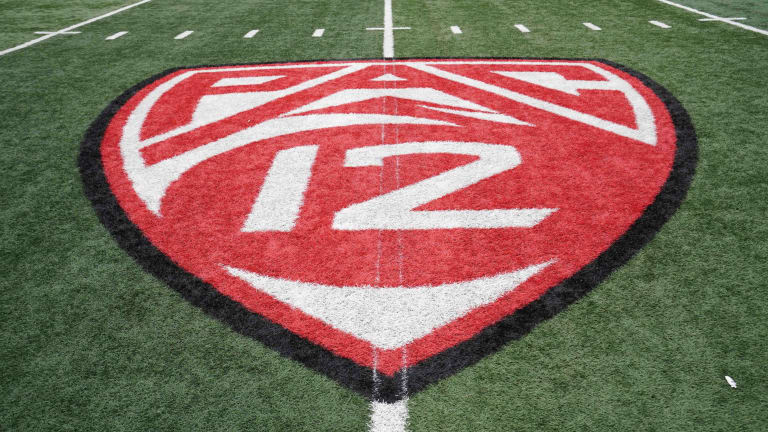
The Daily Fizz: Paid Athletes, Politicians, and the Mess that will ensue

It doesn’t take a genius to know that the world of collegiate athletics will someday soon flip on its head.
Personally, I don’t care if student athletes get paid or not. The commitment and sacrifice they make in a world driven by massive television contracts, advertising and sponsorship dollars, endorsement deals, and next-generation marketing that creates endless revenue opportunities warrant some sort of allocation of profits back to the student athlete mightily contributing to the success of a conference and the individual colleges and universities.
However, are we really going to trust a model derived from the State of California legislative body and Governor’s Office? These are the same institutions that are currently responsible for a state increasingly famous for the misallocation of hard-earned taxpayer dollars from real-world infrastructure and support service needs to pet projects. A state that solves problems with patches and band aids rather than getting to the root cause of an issue and actually resolving the worsening problems the state faces today.
I’m sure Governor Gavin Newsom and his cohorts are already patting themselves on the back after the NCAA voted this week to implement a yet-to-be-defined system where student athletes can generate their own revenue streams. I just wonder if these same politicians will be around when the concept is actually applied and begins to destroy the fabric of amateur sports.
Already, politicians on Capitol Hill are talking about introducing legislation to unionize student athletes and modify the tax code to account for student athlete earnings. Can you imagine the day when student athletes go on strike to demand more benefits? When that day comes, and it will, college sports will cease to exist because the fans will simply walk away at the same time student athletes are walking in picket lines on college campuses across the country.
A more immediate reality is the problems such an idea will create in the fundamental ways college sports work today. After decades of fighting fraud, illicit dealings by shady student athlete handlers, and the daily fight to keep sports agents as far from the amateur athlete as humanly possible, with the swipe of pen all this garbage that has plagued amateur sports will be let in through the front door.
It’s difficult enough to be the coach of any sport, from water polo to football. Now imagine a college coaching staff on the recruiting trail talking about local car dealerships who can pay the prospective student athlete $100,000 in their town compared to another school where the going rate for a car dealer sponsorship is $80,000. Imagine Nike or Adidas or Under Armour giving one student athlete on campus a million-dollar shoe contract, while everyone else in the Athletics Program gets nothing. Sure, everyone else will still get the free clothing, but complaints and questions like “Why do I have to wear and advertise Nike clothing when I’m not getting paid for it?” will spread like wildfire. On the same note, imagine if players on the men’s basketball team are earning an average of three, four, or five times more than the women’s basketball team. Worse, imagine the same, except the women’s basketball team is a perennial powerhouse, while the men’s team is a perennial loser.
How will the college Transfer Portal work? Will it become like professional free agency where a student athlete is excelling, but the revenue streams at their original school of choice are falling short of expectations. “Hey coach, you’re great, and this campus is awesome and all, but I’m going to test the waters because I can get more views on my Instagram account if I’m playing in a more heavily populated market like NYC, Los Angeles, or Chicago?”
This is the stuff of nightmares, and the types of things short-sighted politicians will not be thinking about.
These nightmares will surface, though, and things will undoubtedly get messy. Particularly, when fans grow tired of any nonsense that develops and begin to realize that when they went to college, they too were scrambling to find a buck around the dorm room, living on Top Ramen noodles and boxes of Mac n’ Cheese, working minimum wage jobs around campus to buy school books, taking out massive loans to fund their education, and then making sacrifices post-graduation to pay off the loans.
I don’t pretend to have all the answers, but in addition to scholarship money, housing, per diems, free clothes and gear from top name brands, all-you-can-eat food during the season, and good old-fashioned name recognition, whether a student athlete moves on to the professional ranks or more commonly applies for a job after graduation like the rest of us, perhaps it’s simply smarter to have these athletes, across all sports, share in the profits.
Surely, multi-billion dollar sponsorship deals can be distributed equitably across the pool of student athletes contributing to the overall success of amateur athletics. Surely, a team, in any sport, winning a conference title, a conference tournament, or a national championship can earn player bonuses based on advertising dollars supporting the event. Surely, there’s a way to actually make compensations for winning greater than for losing. I say this because the last thing I want to see is individual players on a losing team complain about how their profits are down because the Chinese government banned YouTube last week and their page views declined.
Regardless of my opinion, the one thing I do know is that once you open the flood gates, the flood waters can and will go anywhere they want.
The flood gates have now been opened by the rich, famous, and powerful, and now it’ll be up to the normal people to sort out the mess that will ultimately ensue.